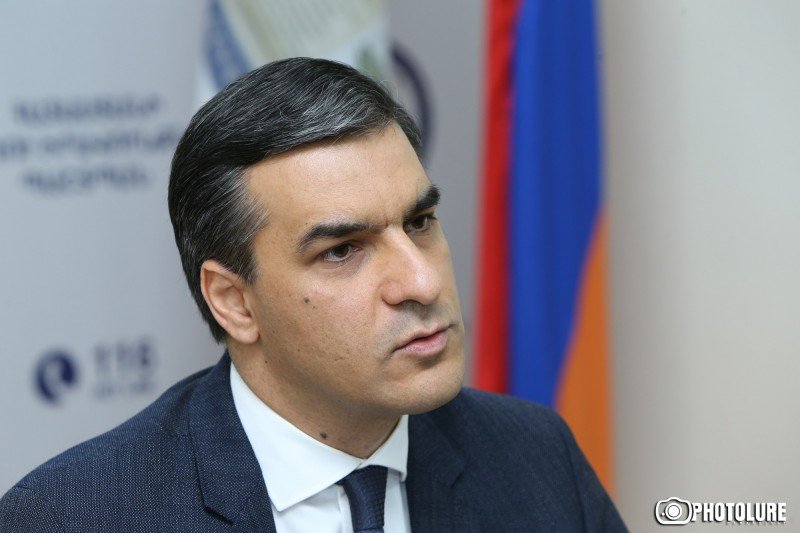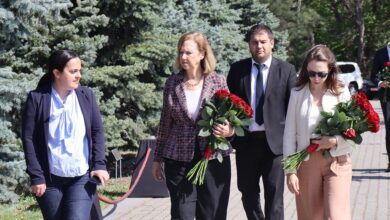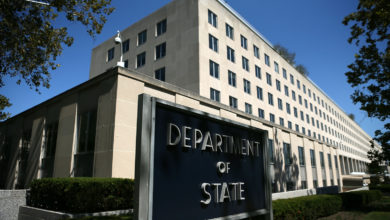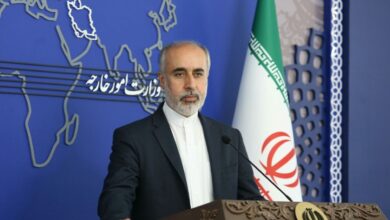
Initiating criminal proceedings against the Armenian captives held in Azerbaijan, detaining them and calling them “terrorists” or “saboteurs” are gross violations of international humanitarian law and international human rights law in general, Armenian Human Rights Defender Arman Tatoyan said in a statement.
The statement reads:
On February 26, 2021, the President of Azerbaijan announced. “We carried out an anti-terrorist operation, as a result of which more than 60 terrorists were arrested. They are now called prisoners of war. We think this is a distortion of the issue, because 20 days after the end of the war there can be no prisoners of war. We have returned all the prisoners of war. We returned them before they returned our captives to us. And these people are not prisoners of war, they are terrorists, they are saboteurs.”
1. The Human Rights Defender of Armenia once again resolutely states that all servicemen of the Armenian side detained in Azerbaijan are civilians with the status of captives.
All the servicemen were in Artsakh to fulfill their constitutional duty, and they were there on legally mandated military service.
2. Reliable evidence collected by the Human Rights Defender’s Office confirms that the number of detainees is higher than confirmed by the Azerbaijani authorities. This, after taking into account return of the group of 44 prisoners.
The Human Rights Defender has registered numerous cases when, despite the evidence confirmed by videos and other evidence, the Azerbaijani authorities deny the presence of persons with them, and/or delay the approval process for their release.
3. Initiating criminal proceedings against the captives of the Armenian side detained in Azerbaijan, detaining them and calling them “terrorists” or “saboteurs” are gross violations of international humanitarian law and international human rights law in general.
They may not be prosecuted or detained for their military service.
This assertion is particularly relevant in light of the requirements of the Third Geneva Convention of 1949.
The Azeri authorities first artificially delayed the return of the Armenian captives, and then began to falsify, abuse the legal process, and directly stated that only “terrorists and saboteurs” were being held in Azerbaijan.
International humanitarian law prohibits such treatment. To be clear, it has the characteristics of a war crime.
The Human Rights Defender of Armenia also considers it necessary to emphasize that in the post-war process, human rights or humanitarian issues, including the release and return of prisoners, should be ensured immediately after the cessation of hostilities; they should not be mired with political processes.
This prohibition applies in all cases under international law, regardless of whether it is enshrined in specific conflict-related documents.
4. The statement of the President of Azerbaijan, that 20 days after the end of the war there can be no prisoners of war, thus calling the prisoners “saboteurs” or terrorists, is absolutely unacceptable.
It is implausible to interpret the November 9 tripartite statement as if it applies only to the situation before the signing of that statement.
First, both before and after the November 9 announcement, and even now, we are still dealing with an ongoing (unfinished) armed conflict. This rule derives directly from the requirements of international humanitarian law.
In addition, the statement of the President of Azerbaijan directly contradicts the intentions of the parties that signed the trilateral statement on November 9, and that statement‘s application in practice.
In particular, based on the requirement of point 8 of that statement, the Republic of Armenia has already transferred to Azerbaijan culprits of crimes in Artsakh, including two convicted murderers of civilians. Azerbaijan has handed over Armenians who were formally convicted in that country to Armenia on the same principle.
Armenia and Azerbaijan handed over the captives after the November 9 trilateral statement.
Thus, the referenced statement should be applied both before and after November 9th to all situations, as long as due to the aftermath of hostilities, there is an objective need for the protection of human rights and the humanitarian process.
Therefore, it is in principle inappropriate to condition the status of prisoners based only on the date of a tripartite declaration. I emphasize once again that, regardless of the date of captivity, all servicemen of the Armenian side detained in Azerbaijan, as well as civilians, are prisoners of war by their status.
5. The absolute urgency of the issue of the release of prisoners should be considered in the context of the policy of anti-Armenianism in Azerbaijan, which has been repeatedly confirmed by reports published by the Human Rights Defender of Armenia based on objective evidence.
6. Therefore, it is absolutely reprehensible that the issue of the release and return of the captives of the Armenian side in Azerbaijan is patently politicized, and the legal processes are distorted and abused.
All of this grossly violates the humanitarian process and international human rights requirements. Therefore, they must all be released without any preconditions and returned safely to Armenia.
7. I therefore call the attention of the international community, and especially of international organizations with a mandate to protect human rights, to the above-referenced statement by the President of Azerbaijan in order to rule out any violation of the humanitarian process, and to ensure that the process complies strictly with international human rights requirements.








